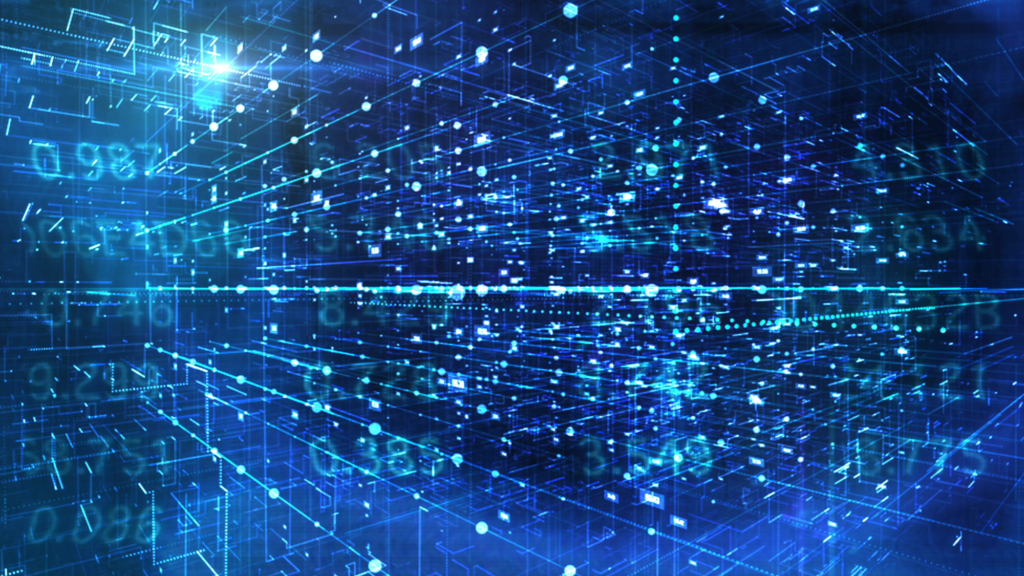A friend recently sat me down to demonstrate the wonders of the AI Chatbot, ChatGPT. ‘Write me a short story about an old man missing his dog and do it in the style of the King James Bible,’ he typed. Seconds later, there it was. ‘Create a lesson plan for a Year 10 Geography class on the cities of the world,’ he instructed. One sip of my tea and voila! An exercise that would usually take about two hours was complete in about eight seconds. What?! I was astonished. Open-mouthed.
If you haven’t yet encountered ChatGPT you soon will, perhaps unknowingly, as a recipient of artificial intelligence-generated content. This ‘Chatbot’ has been trained to interact with users in a conversational way and can generate nuanced and sophisticated responses drawing on billions of data points.

My friend’s unalloyed enthusiasm was obvious—I could see his (strategic) mind whirring with possibility. He’s a marketer and can immediately see how this technology will make his life way easier. Anyone dependent on the production of fresh copy for business plans, emails to clients, marketing campaigns or … almost anything actually, is salivating at the prospects of this tool. Anyone other than copywriters perhaps!
This AI technology will unlock speed and efficiency and open up enormous possibilities of scale and exponential growth for businesses. I am assured that we haven’t even scratched the surface of its potential and it won’t be long at all before companies are stacking video with voice generating AI software to provide, for instance, a full suite of customer support services that capture each business’s unique offerings. Sooner than you might think we could arrive at our local telco store to be met by a truly knowledgeable service-oriented hologram that knows what it’s talking about. Imagine!
The world of AI is here, and vistas of immense and exciting possibility lie before us. That much is certain.
But I must admit, my initial amazement at first encountering ChatGPT quickly gave way to unease and a sense that something essential could be about to be lost. I guess it’s possible that we’ll be able to channel the wonders of AI in a direction that contributes to our collective flourishing … but do we really have the foresight and resources to guide us and avoid unexpected consequences? Moderns have frequently been guilty of naivety when it comes to the impact of technology and the wisdom to carefully consider the wider implications of these instruments of magical powers.
Ironically, what is intended to liberate, ends up enslaving.
Cultural scholar Christopher Watkin, drawing on the work of French Philosopher Jaques Ellul, speaks of the dangers of an unquestioning commitment to ‘technique’ or the insatiable drive for efficiency that is a pervasive presence in everything today from manufacturing to education to healthcare and even relationships. Watkin believes that to build society primarily on the notion of ‘efficiency for efficiency’s sake’ inevitably subordinates human beings to an economic function. They become a means to an end. Ironically, what is intended to liberate, ends up enslaving. The pursuit of efficiency through technology and rationality can unintentionally lead to incredibly irrational outcomes that diminish our humanity. The net cost/benefit needs to be in view.
In 2020, Alex Karp, CEO of the U.S. data company Palantir, offered a surprising warning about the dangers of technology’s future directions in a letter to investors quoted in the Financial Times. ‘Our society has effectively outsourced the building of software that makes our world possible to a small group of engineers in an isolated corner of the country,’ he wrote. ‘The question is whether we also want to outsource the adjudication of some of the most consequential moral and philosophical questions of our time.’ Elaborating on this theme Karp wrote, ‘The engineering elite in Silicon Valley may know more than most about building software. But they do not know more about how society should be organised or what justice requires.’
That kind of assessment requires a sober appraisal of who we are as human beings, and the ways we can engage with tools of weighty consequence – both good and bad.

Sam Altman is the 37-year-old CEO of OpenAI, the company that has released ChatGPT. In a recent YouTube interview with Connie Loizos for StrictlyVC, Altman appears genuine in his aim to introduce AI in a responsible manner that reduces harm. But he can barely contain his zeal for where this technology can take us. He envisages a growth in our knowledge of the universe and everything in it that in one year will achieve what would have taken thousands of years without AI. He speaks of ‘unbelievable abundance’, finding ways to resolve deadlocks and ‘improve all aspects of reality’ such that we ‘all live our best lives.’ It’s a thoroughly utopian vision and in that sense, we have been here before.
Alarmingly, even someone as invested as Altman can see the down sides and potential catastrophes that could eventuate should AI be directed in negative directions. ‘Lights out for all of us,’ he says as a description of the worst-case scenario. ‘I think it’s impossible to overstate the importance of AI safety and alignment work,’ he says. That all sounds pretty serious to me, but fascinatingly, Altman is mostly worried about the accidental misuse of AI rather than sinister deployment.
His faith in progress and the essential goodness of humankind is unmistakable. ‘What I think is going to have to happen is society will have to agree and, like, set some laws on what an AI can never do or what one of these systems can never do.’ Even the most superficial understanding of human history would give us reason to wonder where Altman finds optimism for society’s ability to ‘agree’ on matters as complex as this and how he is able to imagine that the deception of the human heart would not be in play in this dance with the super-power we have before us.
American author and commentator Andy Crouch is deeply concerned that we use technology to help us thrive as human beings. Unquestioning acceptance of all the gadgetry that increasingly dominates our lives won’t cut it. He characterises the great promise of technology as ‘We will no longer have to do X’ (wash our clothes by hand, build a huge fire every night to stay warm), and ‘We will now be able to do Y (move easily from town to town, or country to country by driving and flying). What we don’t give enough consideration to however is how those ‘promises’ are coupled with another set of imperatives, ‘We now won’t be able to do x (remember how to build a fire ….’) and, in fact ‘We now will be compelled to do y’ (put a smart phone in the hands of children in order for them to function in society.) There are times when this deal doesn’t serve us well.
Part of the complexity we now face lies in where and in what ways artificial intelligence is deployed into our lives.
‘… as far as I know, algorithms don’t feel. Data doesn’t suffer.’
When legendary songwriter Nick Cave was sent the lyrics to a song written by ChatGPT supposedly in Cave’s style his reaction was swift and unequivocal: ‘This song sucks’, he wrote on Red Hand Files, and labelled it a ‘grotesque mockery of what it is to be human.’ Constructing emails to clients or a marketing plan for a product might be fine but don’t mess with something as profoundly human as song writing or poetry. ‘Songs arise out of suffering … and are predicated upon the complex, internal human struggle of creation,’ wrote Cave. ‘… as far as I know, algorithms don’t feel. Data doesn’t suffer.’
Nick Cave’s blunt reaction to the song writing potential of AI carried with it a not unreasonable concern with where all this might be heading. ‘ChatGPT’s melancholy role is that it is destined to imitate and can never have an authentic human experience, no matter how devalued and inconsequential the human experience in time may become,’ he wrote.
That ‘melancholy role’ of technology in the human future is echoed in Kazuo Ishiguro’s futuristic novel from 2021, Klara and the Sun. Among many other things, this haunting story invites us to consider human nature in light of advances in technology: the promise that we can eventually supersede our physical limitations, the dream that we can replace all that hinders and decays.
The whole story is told from the perspective of Klara, an AF (artificial friend), a class of android employed to look after teenagers. Klara is purchased to care for Josie, one of the elites who’ve been ‘lifted’, or genetically improved and given access to the best educational opportunities.
But she is seriously ill, likely because of that process, and her parents are terrified she will succumb to her illness. Klara is there to emulate Josie to the extent she can ‘replace’ her if that becomes necessary. Will it be enough?
Is there a place for accepting our limitations and setting corresponding limits to where our technology can take us?
There is a darkness in all this manipulation of what it is to be human and a desperation in characters convincing themselves that technology will be the means of our salvation. ‘The second Josie won’t be a copy,’ implores a true believer. ‘She’ll be the exact same and you’ll have every right to love her just as you love Josie now.’
The pathos lies in the fact that, as technologically marvellous as she is, it’s clear that Klara won’t ever reach the depths of human emotion, memory, and complexity necessary to be Josie in any way that matters. And in the process of reaching for this outcome everyone is diminished. We are embodied beings — both glorious and fragile. Is there a place for accepting our limitations and setting corresponding limits to where our technology can take us?
We will need help to navigate such complexity and the wisdom — both ancient and modern — of philosophers, ethicists and theologians.
Considering what is essential to our human nature would be an important place to start. The Jewish and Christian conception of each and every person ‘made in the image of God’ can’t be surpassed in ascribing irreducible value to human life. But that same designation recognises that we are also flawed, limited and capable of great harm – even unintended harm. The implication of both of these truths could serve as a vital foundation and guardrail for wherever the AI journey is about to take us. Buckle up!
Simon Smart is the Executive Director of the Centre for Public Christianity and the host of Life & Faith podcast.
This article first appeared at Eureka Street.


